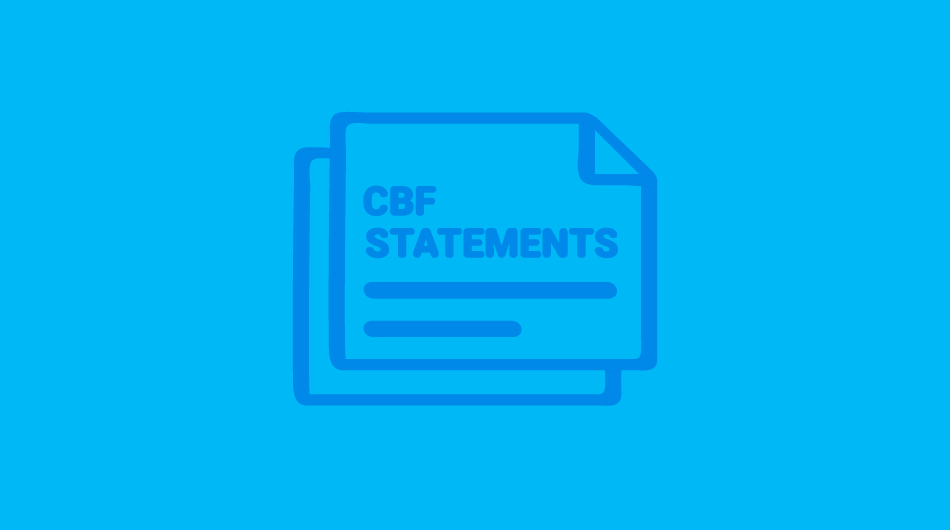Today, 30 June 2021, the Equality and Human Rights Commission (EHRC) has published Restraint in schools inquiry: using meaningful data to protect children’s rights, following an inquiry to understand more about how schools are recording and monitoring the use of restraint in England and Wales.
The report states that a significant proportion of schools do not have basic safeguards in place to protect children including a policy covering the recording of restraint. The CBF supports the recommendations in today’s report including the introduction of national recording standards and reporting requirements.
Viv Cooper, CEO of the CBF commented:
The Challenging Behaviour Foundation continues to have serious concerns about the inappropriate use of restraint in school and the impact on children, young people and their families.
We welcome the findings of this inquiry highlighting the absence of basic safeguards to protect children from being harmed during restraint. We urge the government to take urgent action to implement the recommendations of the report in order to minimise the use of restraint and ensure that children’s rights are protected.
Evidence shows that the right way to support children is by meeting the underlying need leading to their behaviour. Using restrictive responses does not address the reasons for challenging behaviour, can result in physical and emotional harm and is more likely to exacerbate challenging behaviour than to decrease it.
Whilst we welcome today’s report, much wider systemic change is needed in order to protect the rights of children with severe learning disabilities, including joined up working to meet all needs arising from a child’s disability and reform to how local authorities investigate and protect children from harm caused during restraint.
Positive Behaviour Support is highlighted as good practice in the report and we welcome the examples of good practice, which must be promoted and implemented widely. There is a huge amount of evidence about how to support children well and avoid restrictive interventions, so there is no excuse for injuring children through use of outdated and harmful practices.
Further information
The EHRC inquiry was carried out through an online survey of schools to assess the extent to which they record, monitor and analyse any data about restraint with 641 responses. The inquiry also gathered detailed information from nine schools across England and Wales to show the benefits of keeping comprehensive records to understand the use of restraint and develop positive behaviour support, and heard from local authorities in Wales and a range of stakeholders in England and Wales that had evidence and informed views about the recording and monitoring of restraint in schools.
In contrast to other children’s settings, including children’s homes, there is currently no legal requirement for schools in England and Wales to monitor restraint. In the absence of mandatory requirements for recording and monitoring restraint, schools in England and Wales need to develop their own recording systems.
In April this year, the CBF issued a statement following a BBC Breakfast feature on the issue of restraint in schools.
About the Challenging Behaviour Foundation
The Challenging Behaviour Foundation (CBF) is the only UK independent registered charity specifically focussed on children and adults with severe learning disabilities whose behaviour challenges. We provide information and support; run workshops; share evidence and best practice and speak up for families on a national level.
The CBF have been working with family carers and other national organisations (including schools and charities) across the UK as part of the RRISC group (Reducing Restrictive Interventions and Safeguarding Children) since 2018 to highlight the experiences of children and young people and their families. Our reports (2019 and 2020) have highlighted the negative impact of restrictive interventions and the lack of available information about the extent of the issue.
Contact us
Support from the CBF
Family Support Service
If you have been affected by any of the issues raised in this article, you can call the Family Support Service on 0300 666 0126
Or email us at support@thecbf.org.uk
We are open at the following times:
- Monday – Thursday: 9am – 5pm
- Friday: 9am – 3pm
We offer information about challenging behaviour to anyone who provides support to a child, young person or adult with a severe learning disability. We can also signpost you to other specialist organisations and sources of information.
Please note we are a small support service so you may not be able to get support straight away. We will support families with urgent concerns as a priority.
Resources on our website
Please consult the information on our website:
What to do when things go wrong
Information and guidance on physical interventions
Restraint, seclusion and medication


